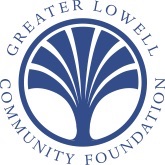Written by Monica Markovski, PhD, and de la Fember.
Often times women can face difficulty in succeeding in science because a persistent bias exists to undercut a woman’s self-esteem. Recently, a study has been published showing the gender bias reality that many women face in science (http://www.pnas.org/content/early/2012/09/14/1211286109#aff-1). In fact, during my graduate career, I have also faced many of the stereotypes which prevent women from advancing in their scientific careers. While troubling, these hurdles definitely provided me with even more motivation to overcome this gender gap, if only to “to stick it to the man” (pun fully intended).
Another such comrade in arms is my former graduate school classmate, Christina Agapakis. Christina had always been a super star in my class. She joined a synthetic biology group where she designed biological systems to do just about anything she wanted them to. Not only did Christina do great scientific work, but she also loves to blog about all things science to make it accessible to the general public.
Recently, I got back in touch with Christina after she was named one of Forbes magazine “30 under 30” (http://www.forbes.com/special-report/2012/30-under-30/30-under-30_science.html) for science and healthcare. This is an amazing accomplishment, I thought! But how did she get to where she is today? What did she have to overcome in order to succeed? Well, why not ask the scientist directly? So I decided to pick her brain and ask her about her passion for science and all things art and media.
——————-
MM: Congratulations on being named both a L’Oreal USA Women in Science Fellow and for being a part of the Forbes 30 under 30 list. Those are amazing accomplishments. How do you think these have helped you further your career?
CA: Thanks! It’s a great honor to be recognized. The L’Oreal For Women in Science program does amazing things to promote women scientists around the world, and it is so special to be part of this great group.
MM: Based upon your experience, have you found it difficult to be a woman in science?
CA: I’ve been really lucky to have never had to face any overt discrimination during my career, but I do think that the subtle biases against women in science and engineering can negatively affect all women. Because science is supposed to be objective and objectively meritocratic, these biases can be hard to identify and end up being self-perpetuating. Since there are fewer women in some science and technology fields, an objective assessment based on those statistics might ask whether women just aren’t as intrinsically interested or intrinsically able to do the job as men. These attitudes can actually harm women’s performance, as is seen in studies of stereotype threat (http://en.wikipedia.org/wiki/Stereotype_threat), and can influence the opinions of the faculty that can then affect student admission, hiring, and promotion (http://www.pnas.org/content/early/2012/09/14/1211286109), maintaining the skewed numbers.
MM: What do you think can help motivate more women to pursue science or other STEM (Science, Technology, Engineering and Mathematics) fields?
CA: I think that the problem lies less in the motivation of girls and women and more in the cultural biases and structural inequalities that can make it harder for women to advance in their chosen careers. I think even in [the Biological and Biomedical Sciences] program at Harvard the percentage of female students was at least 50%, so we definitely have tons of highly motivated women studying science, especially biology. The numbers are more skewed in physics and engineering early on, but I think that the drop off in the percentage of women at the highest ranking positions in science largely mirrors the drop-off that happens in other careers in business, politics, law, etc. These problems are all linked and have to do with much more than individual ambition, but also with how women are perceived and evaluated, the roles of women in family and home life, and the daily challenges of the majority of women that don’t have the opportunity to worry about high powered job statistics. It’s been a complex and difficult year for “women’s issues” in the news, but I’m optimistic about the fact that these conversations are happening so prominently and for the potential for feminism to help women in all of these areas.
MM: Social media now is a huge forum for scientific discussion and debate between scientists and non-scientists alike. And you have a huge web presence. Why did you decide to promote your science in this way?
CA: Blogging and twitter for me aren’t about promoting my own research or even synthetic biology in general, but about sharing, thinking through, and discussing ideas that excite me and that I want to learn more about. With social media I can communicate with and learn from people far outside of my field, from other scientists and engineers but also from social scientists, historians, artists, educators, and writers. These conversations have really shaped my research and have led to many great friendships, online and in real life.
MM: Speaking of social media, are there any blogs that are on your must-reads?
CA: Here is a very abridged list of favorites in no particular order:
————————
Obviously Christina has gotten quite far in her scientific career. Her best advice on how to succeed? “[To] learn to read, learn to write, find great mentors, and never listen to other people’s advice. Young scientists have a lot of people telling them what they should be doing, what they should be reading, how much time they should be spending at the bench, and how many papers they should be publishing, which usually just translates into productivity neurosis and ‘I’m-more-hardcore-than-you’ competition rather than actual learning and good science. Do what you’re excited about, always have a side project, read widely, learn from your friends and colleagues, and don’t let the PhD-comics version of what a graduate student is stop you from being a good scientist.”
Great advice to live by. Maybe I’ll try them myself.
**Besides excelling in science, Christina also likes to have fun, whether it’s simply watching TV and doing yoga or expressing her creative side through art, reading books, knitting, or even just blogging about her scientific happenings. If you’d like to learn more about Christina or read what she’s blogging about these days, just visit agapakis.com and http://blogs.scientificamerican.com/oscillator
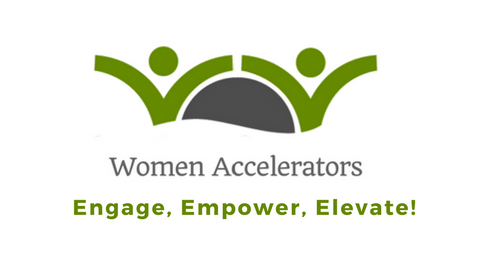
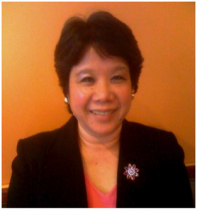
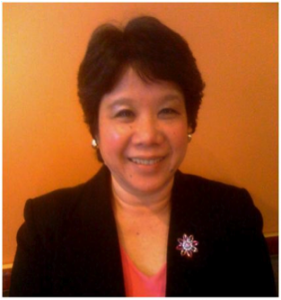

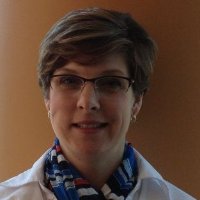
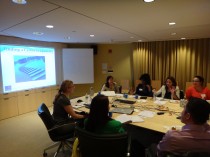
 J. ENDICOTT/CORBIS
J. ENDICOTT/CORBIS